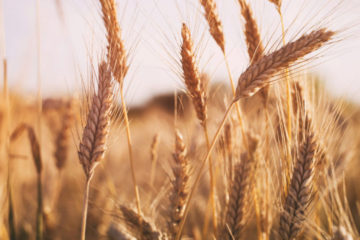Alison Bentley in Nature:

Six boxes of wheat seed sit in our cold store. This is the first time in a decade that my team has not been able to send to Ukraine the improved germplasm we’ve developed as part of the Global Wheat Program at the International Maize and Wheat Improvement Center in Texcoco, Mexico. International postal and courier services are suspended. The seed had boosted productivity year on year in the country, which is now being devastated by war.
Our work builds on the legacy of Norman Borlaug, who catalysed the Green Revolution and staved off famine in south Asia in the 1970s. Thanks to him, I see how a grain of wheat can affect the world.
Among the horrifying humanitarian consequences of Russia’s invasion of Ukraine are deeply troubling short-, medium- and long-term disruptions to the global food supply. Ukraine and Russia contribute nearly one-third of all wheat exports (as well as almost one-third of the world’s barley and one-fifth of its corn, providing an estimated 11% of the world’s calories). Lebanon, for instance, gets 80% of its wheat from Ukraine alone.
More here.